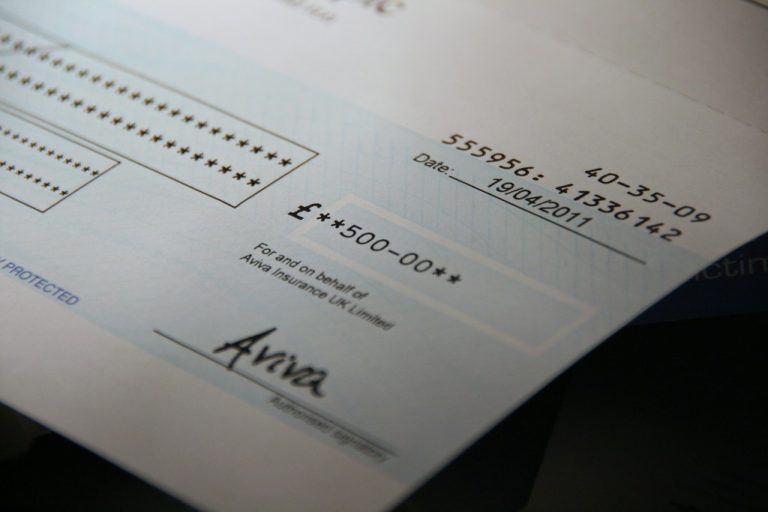The term “balance of net pay” refers to the amount of money that remains after deductions from an employee’s gross pay have been made. It is how much each employee gets paid on payday. So, what does remaining net pay mean for direct deposit?
What Does Remaining Net Pay Mean For Direct Deposit?
The remaining net pay amount is the amount of your paycheck that you will be receiving after taxes, garnishments, and other deductions are taken out. The remaining net pay amount is what’s on your paycheck stub after union dues and taxes are taken out and it will go into one bank account
If you have multiple bank accounts you want to use. The amount would be the direct deposit amount you want to go into one account (ex: 100$ each week) and the second bank account would get the remaining net pay
What Does Balance Of Net Pay Mean?
After deductions from an employee’s gross pay, the balance of net pay is the amount of pay that remains to be issued to the employee. This is the amount each employee receives on payday.
Your net pay (after taxes and other deductions) is electronically transferred into an account, such as a personal checking/savings account with a financial institution of your choice or a payroll card, on payday.
What Does “Direct Deposit Sequence” Refer To?
The sequence number determines the order in which the paycheck is distributed. If only one account exists, the full deposit will be transferred to the REMAINING NET account. For the remaining net account, you will not be able to input any sum or percentage. B.
The Direct Deposit page allows you to input. It adjusts the amount of an employee’s pay that will be deposited immediately into a bank account rather than being paid by check. Up to six bank accounts can be entered. The sequence number entered on the account determines how deposits are made.
Does Net Pay Include Benefits?
No, Net pay does not include benefits. Employees earn gross compensation before taxes, benefits, and other payroll deductions are deducted from their pay. After all, withholdings are removed; the amount remaining is known as net pay or take-home pay.
Employers who understand these two phrases are frequently better suited to negotiate salaries with employees and administer payroll efficiently.
What Factors Affect Net Pay?
1. Savings For Retirement
Some retirement plans, such as the 401(k), deduct contributions from gross pay.
2. Premiums For Health Insurance
Employees frequently contribute to health insurance premiums each pay period, even though employers normally cover the majority of health insurance premiums.
3. Garnishments On Wages
Employers can be ordered by a court to withhold a percentage of an employee’s wages to pay off debt. Credit card debt, student loan debt, child support, alimony, medical costs, and unpaid taxes are all examples of garnishments.
4. Employee Withholding Certificate (Form W-4)
Employees may be required to take out a Form W-4 when they begin new employment, which details their filing status (single, married, head of household), dependents, and other sources of income. These particulars directly impact the amount of federal income tax withheld each pay period.
5. Taxes on Social Security and Medicare
The tax rates on Social Security and Medicare are 6.2% and 1.45%, respectively. Employee contributions must be matched by employers, known as the Federal Insurance Contribution Act (FICA) or payroll taxes.
6. Withholdings on federal income taxes
The federal income tax burden is computed using a bracket system that increases in step with income.
7. Withholdings on state income taxes
Like the federal government, many states have progressive tax bands, while others have no income tax. Furthermore, several cities levy their income tax.
How to calculate net pay
Employers and HR professionals typically follow these fundamental processes when calculating net pay:
- Calculate gross pay by multiplying the hourly rate by the total hours worked or dividing the salary by the number of pay periods.
- Health insurance premiums, 401(k) contributions, and other pre-tax payments are all tax-deductible.
- Withhold all federal, state, and municipal taxes, as well as FICA taxes.
- Wages should be garnished for any court-ordered payments that apply.
Why Is The Difference Between Gross Pay And Net Pay?
Making a budget and planning how to spend your money require understanding the differences. Gross pay is the total amount of money you make at work. Bonuses, commissions, and tips are included in the gross revenue before any deductions; these details are important for planning and budget-making.
The best way to recall the distinction between gross and net compensation is to think of net pay as a fishing net. You won’t get all of the fish in the pond, but you’ll get a good chunk. It’s crucial to understand both the gross and net income for your work or career; nevertheless, the net pay will affect your spending and saving decisions
. To be prepared for financial decisions in your life, you must first understand the difference. You can determine your budget after you know your net pay.
What is the purpose of a w4?
As the employer, Form W-4 informs you of the employee’s filing status, various job adjustments, credits, other income, and deductions. Additionally, any additional amounts to withhold from each paycheck must calculate the amount of federal income tax to deduct and withhold from the employee’s salary.
You must withhold federal income taxes from an employee’s earnings if he or she does not provide you with a fully completed Form W-4. If he or she was single or married, and there were no other entries on steps 2, 3, or 4 of the Form W-4, he or she could file separately. This means that the standard deduction of a single filer will be used to determine to withhold.
What Does Deposit Order 999 Mean For Direct Deposit
Deposit order 999 for direct deposit is your primary direct deposit account and it will default to 999.
This means that if you don’t specify an account number in your direct deposit form, the system will use this number as the default.
If you have multiple accounts with us, you can specify a different number for each one.
1 partial deposit vs remaining net pay
1 Partial payment Meaning :
1 Partial payment Meaning: 1 partial payment is a payment that is less than the total amount due. 1 Partial payment made to the creditor after the due date, or before the formal notice of default.
Remaining net pay Meaning:
The remaining net pay is the net amount of your salary left over after you have paid all your taxes.
For example, if your gross salary is $10,000 and you earn $1000 in interest income from a bank account, then your remaining net pay would be $9000. In this case, the tax deducted at the source was zero because you had no other income apart from the basic salary.
Difference between 1 partial payment and the Remaining Net Pay
The difference between the 1 partial payment and your remaining net pay is that you will get a 1 partial payment on your paycheck only if you have some positive amount left in your paycheck after-tax deduction, whereas your remaining net pay will be the amount left after taxes and other deductions are removed from your paycheck.
Conclusion
We have covered a lot of details on what remaining net pay means for direct deposit. As an employee or employer, I hope the details in this article have been of great help in helping you to better understand the concepts we have covered. Would you like to learn more? Drop a comment, and I will be glad to help out.
- Does Blaze Pizza Take Apple Pay - July 3, 2025
- Canceling Automatic Renewals At Mags.com - July 3, 2025
- 7 Best Gaming Gift Cards Online - July 3, 2025




